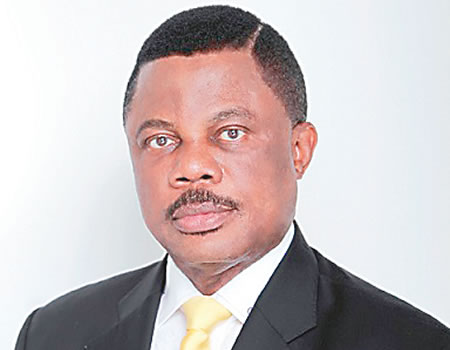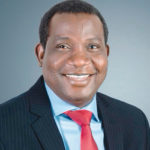The governorship election in Anambra State is still some two years away, but a zoning debate has been kicked off by stakeholders who are already positioning their political parties well ahead of the off-season election, Group Politics Editor, TAIWO ADISA, reports.
Zoning, equity and merit are the three words that have dominated the political space in Anambra State in the aftermath of the February and March general election. Next stop for the state as far as elections are concerned is the governorship election, which is expected in November 2021, and the stakeholders are not letting the steam off the political pot.
The stakeholders are expectedly in different camps. There are those who espouse equity, which they interpret this to mean that all segments of the state should be allowed to have a taste of political power. That is not too different from the zoning campaign, which also canvasses that the three zones in the state, Anambra North, South and Central, should have equal access to the governorship of the state. The third group canvasses merit and capacity to deliver as the key to the political debate. They claim that zoning could sometimes promote mediocrity and limit the intensity and desire for service delivery by the office holder.
BREAKING: Banks to pay N1m for dispensing counterfeit notes ― CBN
The ruling party in the state, the All Progressives Grand Alliance (APGA), has, however, kick-started the debate on the zoning front. Early in April, the national chairman of the party, Chief Victor Oye, announced that APGA would adhere to the zoning system, which he said was introduced to the governorship race by former Governor Peter Obi during his tenure in 2013.
The APGA chairman said the party would therefore zone the governorship position to Anambra South, in line with the said zoning arrangement, adding: “Is that in doubt? The zoning arrangement was started by Peter Obi as an APGA governor then. Obi insisted then that the governor that would succeed him should come from the north district, and now that north has done five years, we have just three years to go and it is very likely it will go to the south.”
He added that when the governorship seat has gone round all zones, it will start again from where it started.
He stated: “Everything about the future is in the hands of God, but as a political party, I would like it to go to the south district for equity sake.”
But media aide to former Governor Obi, Mr Val Obienyem, immediately replied the APGA chief, clarifying that his boss introduced equity and not zoning in the state. According to him, the vice presidential candidate of the Peoples Democratic Party (PDP) in the 2019 elections saw to it that in 2013, equity demanded that the north senatorial district should produce his successor in view of the fact that the zone has not produced a governor for the state up to that time.
Obienyem added that it was important to distinguish between Obi’s support for a zone to produce a governor of the state because of equity and creating a zoning arrangement for the governorship of the state.
He stated: “The former governor of Anambra State and the PDP vice presidential candidate in the last election, Mr Peter Obi, did not introduce nor contemplate introducing zoning in the governorship elections in Anambra State.”
He said though the former governor insisted that the governorship seat should go to Anambra north, the decision was taken “in the spirit of justice and equity.” He said that Obi was emphasising equity, rather than seeking to entrench zoning in an autocratic way.
“It was more of Obi trying to achieve balance of representation to avoid what was clearly unjust and capable of snowballing into a crisis for the state,” he said, even as he cautioned against moves which he said aimed at highlighting only the steps perceived as controversial by his boss.
“If they are looking for noble actions of Obi to commend and emulate, they are legion. They should start by imbibing his spirit of hard work and resourcefulness that made Anambra a reference point during his tenure. They should emulate his insistence on saving for the state, even at a time the country was undergoing its worst economic crisis that enabled him to save over N75bn for the state.
“They should imbibe his support to education and other exploits that made Anambra to be rated as the best in road construction and financial management under him. These are the things needed for the growth and development of our dear state,” Obienyem added.
It was also learnt that the decision by Obi was as a result of some subtle but strong protests from stakeholders in that zone as his term was winding down. It was gathered that very powerful forces in the northern senatorial district had actually reached out to the then President Goodluck Jonathan and expressed frustrations that their zone was being marginalised in Anambra State.
It was on the basis of that under-the-table-protest, Nigerian Tribune learnt, that the powerful stakeholders actually pushed for the creation of a new state out of Anambra to separate the northern senatorial district if its people are not deemed fit enough to rule the entire state.
Sources said that former President Jonathan got words to Obi who, it was gathered, had also been alerted of the disenchantment of the leaders of the northern zone with the perceived marginalisation of the zone. Obi, thereafter ensured that the governorship candidate of APGA emerged from the aggrieved zone.
Right now, Governor Willie Obiano, who was the beneficiary of the subtle but vexed protest by leaders of Anambra north, is running his second term in office and will be handing over to a new governor in 2022.
Though APGA is trying to capitalise on Obi’s spirited move that sourced the governorship candidate from Anambra north, some stakeholders of the same party are not crediting Obi with a zoning arrangement that is sustainable for the state. A loyalist of the ruling party in the state, Nnamdi Ezewuzie, said last week that APGA cannot rest its push for zoning on Obi’s singular action of 2013. He said the entire state must come to terms with the decision to adopt zoning.
He said: “If Anambra State wants zoning in governorship, let it be credited to ndị Anambra and not Peter Obi. Obi said and canvassed for equity that gave the northern part of the state a chance to produce a governor since the creation of the state. You should campaign for zoning in your own personal capacity and not by dropping people’s names. If the two words (equity and zoning) are painful to you guys’ brains to comprehend, get good interpreters as I am ready to offer free.”
But reports from the state are already indicating that the arguments on zoning appear to be waning; whereas, there is a belief in equity, also called zoning in another parlance, there is also the contention that the position of governor has actually gone round the three geopolitical zones of the state.
For instance, the south senatorial district produced Dr Chukwuemeka Ezeife as governor in the Third Republic and also Chief Chinwoke Mbadinuju who was governor between 1999 and 2003. The zone was also recorded to have produced some stand-in governors in persons of Dame Virgy Etiaba, who replaced Peter Obi when he was impeached by the state House of Assembly before he was returned to the seat by the courts, as well as Dr Andy Uba who was governor for 17 days.
The central senatorial district produced Peter Obi who secured two terms of office and before him, Dr Chris Ngige, who was in office for nearly three years but had his tenure voided by the Supreme Court. The incumbent Governor Obiano is from Anambra north, thus completing the trilogy of zoning (or equity), according to analysts.
In the wake of the bourgeoning controversy, however, a media advocacy group, the Media Awareness and Development Advocacy Forum (MADAF), embarked on a study of the political scene. The report of its one-week survey of the three geopolitical zones of Anambra made public last week indicated that zoning is more of an elitist agenda aimed at “2022 power grab.”
MADAF’s programme officer, Patricks Abi, said the survey, which polled some 1,200 respondents, confirmed that the grassroots citizens of Anambra State were looking forward to the emergence of a competent candidate who would deliver the much-needed dividends of democracy.
The group said in its background to the report: “Ahead of the Anambra State governorship election, the issue of zoning is again gradually creeping into the political discourse in the state, especially among the political elite who always use it to achieve self-seeking political interests.
“Already, there is on-going stubborn argument by some invested political interest that it is the turn of the Anambra south to produce the next governor of the state, in line with the purported zoning arrangement, a political seed, which these promoters said was planted by a former governor of the state, Peter Obi, when he was leaving office in 2013.
“But Obi has since denied the zoning issue, saying what he did in 2013 was to ensure political equity among the three senatorial districts. In a recent press statement, he said there was never a time he suggested the issue of zoning formula in the state governorship election.
“In line with the former governor’s current position, there are many political stakeholders in the state who hold the view that zoning discourse has outlived its usefulness in the state’s governorship seat because each of the zones has at different times produced governors in the state. The argument of these people is that what matters in the next governorship election is the credibility of the candidate – somebody who can deliver on good governance.”
Disclosing its findings, MADAF said: “From our findings, it is obvious that the faulty narrative by some political actors, especially those from Anambra south, on zoning, is insignificant and not popular among the electorate.
“The narrative is an elitist agenda aimed mainly at power grab. Majority of the citizens and the electorate are looking up to credible candidates in the governorship election with capacity to deliver on good governance; address the issues of insecurity, unemployment among the youth, huge poverty, growing deficit of infrastructure and other socio-political and economic challenges in the state.”






